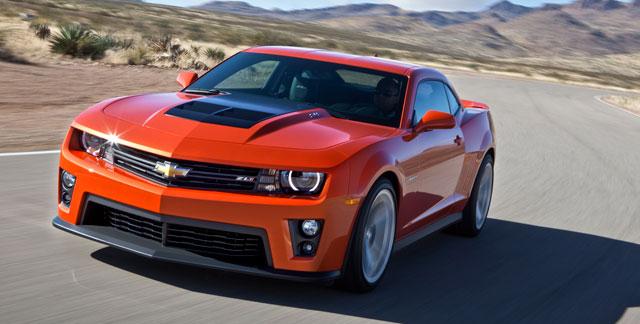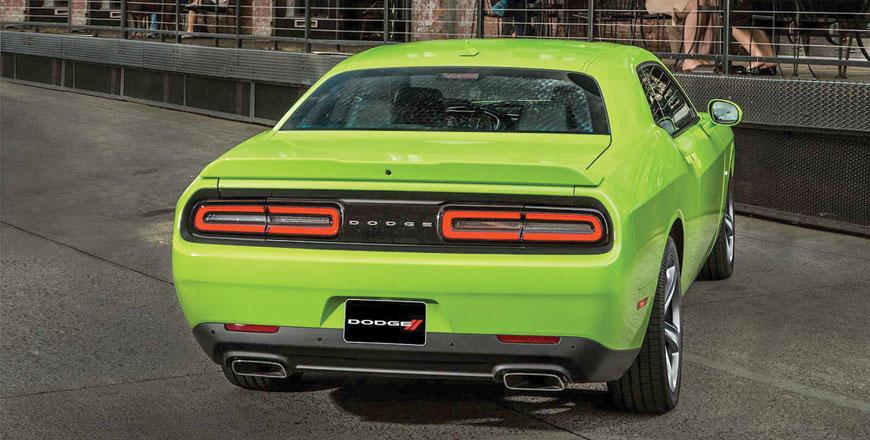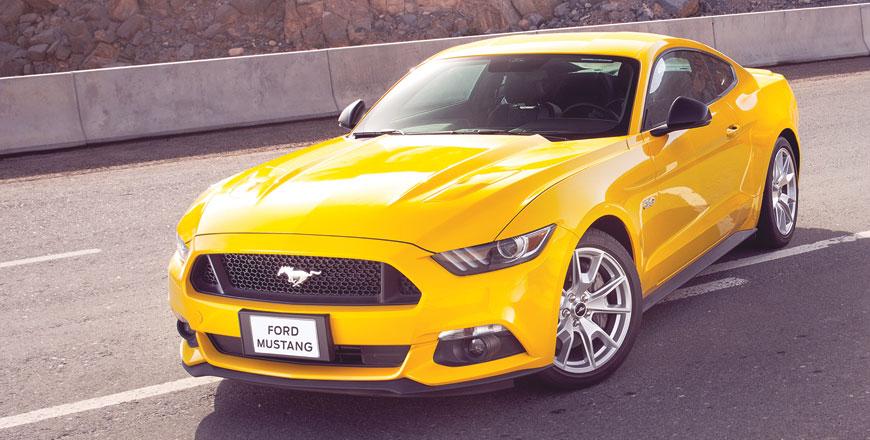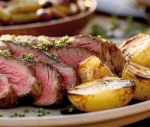You are here
Rise and demise of the modern muscle car: Ford Mustang Dark Horse, Dodge Challenger SRT Demon 170 & Chevrolet Camaro ZL1 1LE
By Ghaith Madadha - Apr 25,2023 - Last updated at Apr 25,2023

Among the most evocative and honest of all car segments with its emphasis on undiluted thrills, aggressive designs, feelgood flavours and visceral driving, delivery and sounds, the muscle car started out as an affordable everyman’s answer to exotic European sports cars. A byword for American charm and excess in equal measure, the muscle car saw a resurgence of fortunes during the 2000s as retro automotive designs gained favour. But with the EV age just around the corner and imminent retirement of some segment stalwarts, only one true muscle car remains as an antidote to the unpalatable prospect of tall, heavy and disconnected electric interpretations.
Ford Mustang Dark Horse
The alpha and omega of American muscle cars, the Ford Mustang was first out of the stable when introduced in 1964, and again in 2004 when its fifth generation model reestablished the segment in a distinctly retro-infused fashion. Two decades later with chief rivals set to retire within months — to possibly be replaced by inauthentic EVs later in the future — Ford instead re-commits to the muscle car ethos with a new generation that improves on the combustion engine recipe that has consistently made the Mustang the world’ best selling sports car.
Though guilty of perhaps overextending the Mustang nameplate with its own electric-powered crossover vehicle, Ford has nevertheless continued developing the soon to be outgoing sixth generation Mustang with ever sportier, better handling and more powerful models. However, the introduction of the seventh generation will ensure the survival of “real” muscle cars for enthusiast drivers well into the decade. Built on an evolution of the current model’s platform, the next Mustang also follows similar design cues, but promises to be sharper, more focused and more aggressive, both mechanically and aesthetically.
Set to initially launch with a turbocharged 2.3-liter 4-cylinder Ecoboost engine and two variants of Ford’s naturally-aspirated 5-liter V8 Coyote engine, the first higher performance MK7 Mustang will be the Dark Horse variant, with even more powerful versions arriving later. Expected to produce 500BHP and 418lb/ft, with estimated 4-second 0-97km/h acceleration, the Dark Horse wears a more sinisterly dramatic look and includes standard MagneRide dampers, Torsen limited-slip differential, stiffer suspension, improved cooling, more responsive steering and a choice of 6-speed manual or 10-speed automatic gearboxes.
Specifications
Engine: 5-litre, V8-cylinders
Gearbox: 6-speed manual, rear-wheel-drive, Torsen limited-slip rear differential
Power, BHP (PS) [kW]: 500 (507) [373]*
Torque, lb/ft (Nm): 418 (567)*
Rev limit: 7,500rpm
0-97km/h: 4-seconds*
Length: 4,818mm
Width: 1,917mm
Height: 1,402mm
Wheelbase: 2,718mm
Weight: 1,769kg*
Suspension, F/R: MacPherson strut / integral-link, adaptive dampers
Tyres, F/R: 255/40R19 / 275/40R19
Dodge Challenger SRT Demon 170
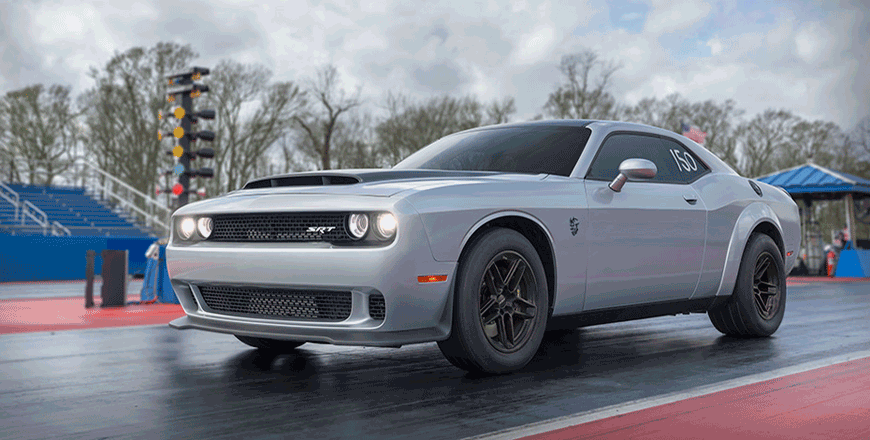
Set to retire as the longest running modern muscle car since it first arrived in 2006, the third generation Dodge Challenger was arguably the closet to its iconic 1970s forbearer in dimensions, design and disposition. Based on a Mercedes-derived platform from the bygone Daimler-Crysler era, the Challenger remains the largest and most aggressive among its Ford and Chevrolet rivals — if not the sportiest or most agile — and evokes the same palpable sense of menace as it nears discontinuation at the end of the year.
A vast and dramatically aggressive modern muscle car with its broad width, Coke-bottle hips, recessed quad headlights and small glasshouse, the Challenger has spawned numerous and ever more powerful iterations over the years, and dramatically upped the ante with the 707BHP SRT Hellcat variant in 2015. Likely to be supplanted by some EV along the lines of the 2022 Dodge Charger Daytona Concept, the Challenger’s outright power and sound might even be mimicked, but its visceral old school charms and combustion engine appeal cannot be replicated.
Going out with a proverbial bang, the Challenger added the most prodigious evolution of the Hellcat’s supercharged 6.2-litre V8 engine to the roster last month. A swan song variant and the most powerful muscle car ever, the Challenger SRT Demon 170 extensively improves on the 2017 Demon’s 840BHP and even outmuscles Dodge’s 1000BHP 2018 Hellephant crate engine. A street legal drag racer, the Demon 170 develops 1,025BHP at 6,500rpm and 945lb/ft torque at 4,200rpm when running ethanol-infused E85 fuel, and can rocket through 0-97km/h in just 1.66-seconds.
Specifications
Engine: 6.2-litre, supercharged V8-cylinders
Gearbox: 8-speed automatic, rear-wheel-drive, limited slip differential
Power, BHP (PS) [kW]: 1,025 (1,039) [764] @6,500rpm*
Torque, lb/ft (Nm): 945 (1,281) @4,200rpm*
0-97km/h: 1.66-seconds*
Length: 5,015mm
Width: 2,001mm
Height: 1,459mm
Wheelbase: 2,950mm
Weight: 1,941kg
Suspension, F/R: Double wishbone / five-link, adaptive dampers
Tyres, F/R: 245/55R18 / 315/50R17
Chevrolet Camaro ZL1 1LE
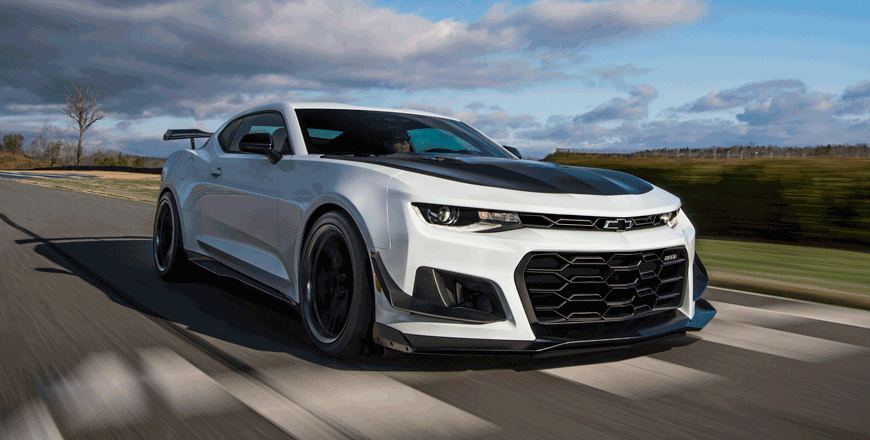
Launched in 2015 as a slightly smaller muscle car riding on General Motor’s Cadillac Alpha Platform rather than its predecessor’s Holden-derived Zeta platform, the sixth generation Camaro placed more emphasis on sportier and more agile handling. Styled to accentuate its immediate predecessor’s stylised retro-futuristic design with a seemingly yet smaller glasshouse and more aggressive fascia, the MK6 line-up also included the first downsized turbocharged 2-litre four-cylinder engine Camaro, but is now set to be retired by early 2024, with no heir apparent.
With any next generation Camaro expected to return as a less charismatic EV after a brief hiatus, the current model however bows out with the ZL1 1LE specification as its most powerful variant. Powered by a supercharged 6.2 litre V8 engine developing 650BHP at 6,400rpm and 650lb/ft torque at 3,600rpm, the Camaro ZL1 can is even still available with a proper analogue three-pedal 6-speed manual gearbox. Blasting through 0-97km/h in around 3.7-seconds, the ZL1 is quicker still with the optional 10-speed automatic gearbox.
A welcome — albeittemporary and non-street legal — respite from the march towards electrification, Chevrolet also offer the drag race specification COPO Camaro. With a huge bonnet bulge and rugged 3-speed automatic gearbox, engine options include 470BHP naturally-aspirated 7-litre and 600BHP supercharged 5.7-litre small block V8s, and a lazy 430BHP 9.4-litre big block. But the most powerful features Chevrolet’s naturally-aspirated 10.3-litre big-block V8 ZZ632 crate engine, developing 1,004BHP at 6,600rom and 876lb/ft torque at 5,600rpm.
Specifications
Engine: 6.2-litre, supercharged V8-cylinders
Gearbox: 6-speed manual, rear-wheel-drive
Power, BHP (PS) [kW]: 650 (659) [485] @6,400rpm
Torque, lb/ft (Nm): 650 (868) @3,600rpm
0-97km/h: 3.7-seconds (estimate)
Length: 4,812mm
Width: 1,905mm
Height: 1,334mm
Wheelbase: 2,811mm
Weight: 1,772kg
Suspension, F/R: MacPherson strut / five-link, adaptive dampers
Tyres, F/R: 305/30R19 / 325/30R19
Related Articles
The most muscular iteration of Chevrolet’s highly stylised retro-futuristic Camaro muscle car, the ZL1 is a high performance bargain with brutish power and performance.
Introduced as a 2008 model heavily influenced by the ionic original 1970-74, the revived third generation Challenger was Dodge’s gambit into
America’s most celebrated car, the Ford Mustang was first launched in 1964 and is credited with creating the affordable, accessible and visc


